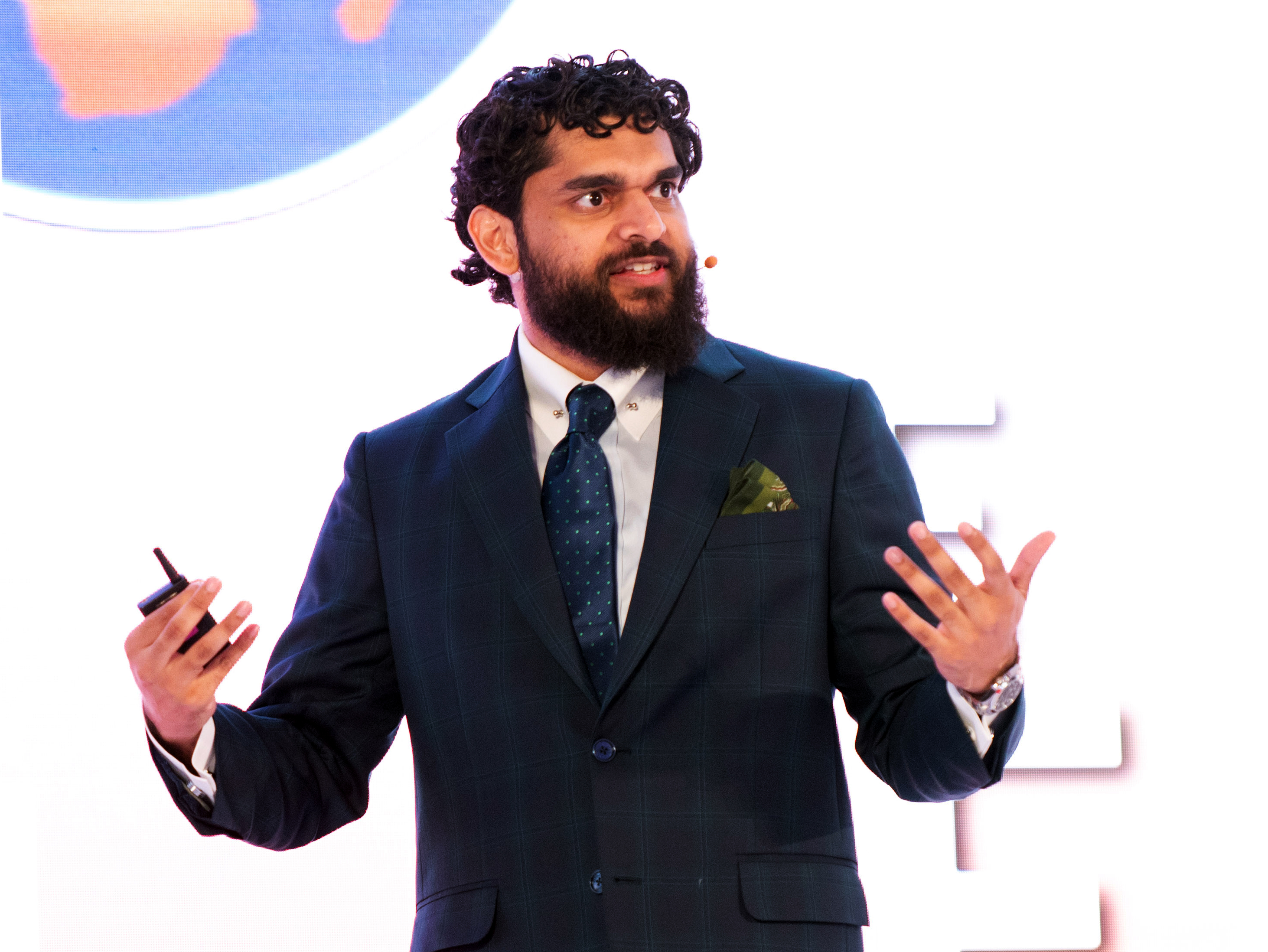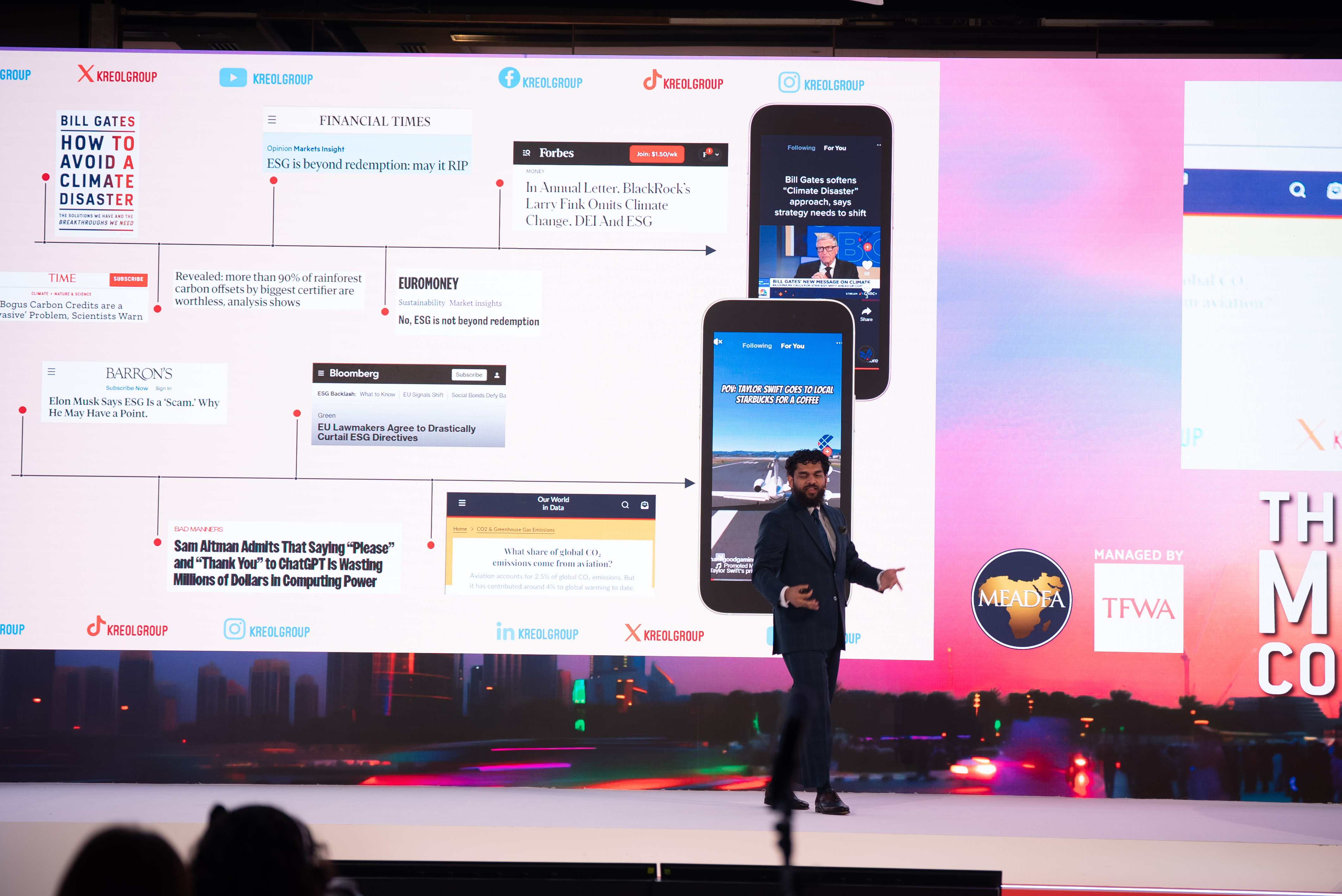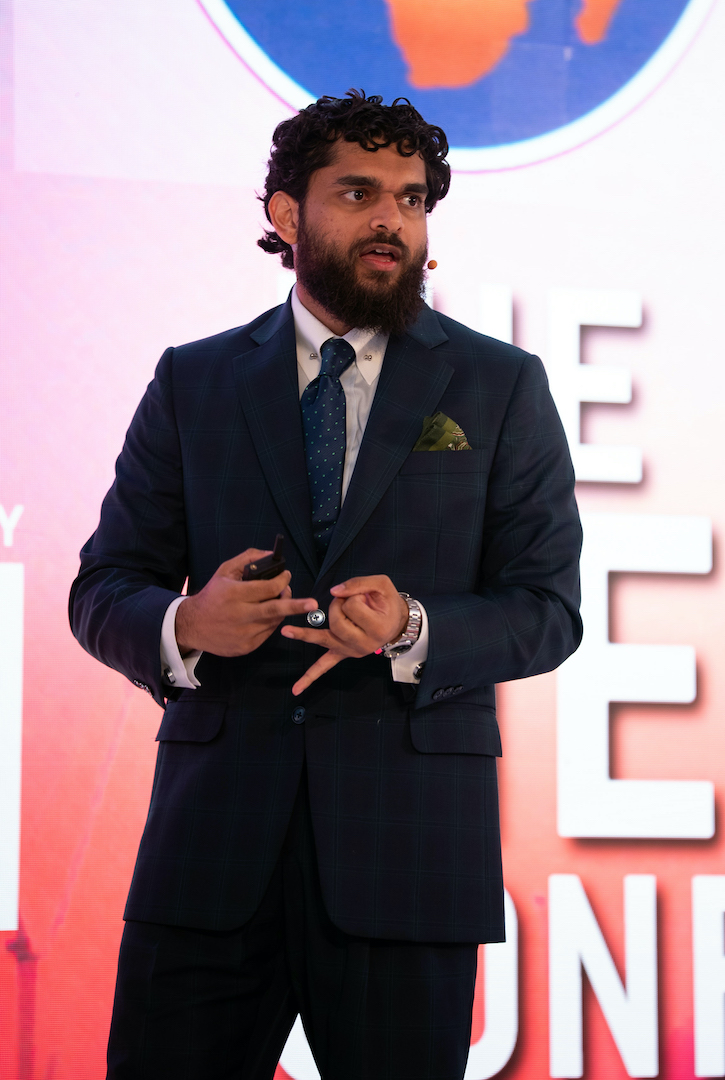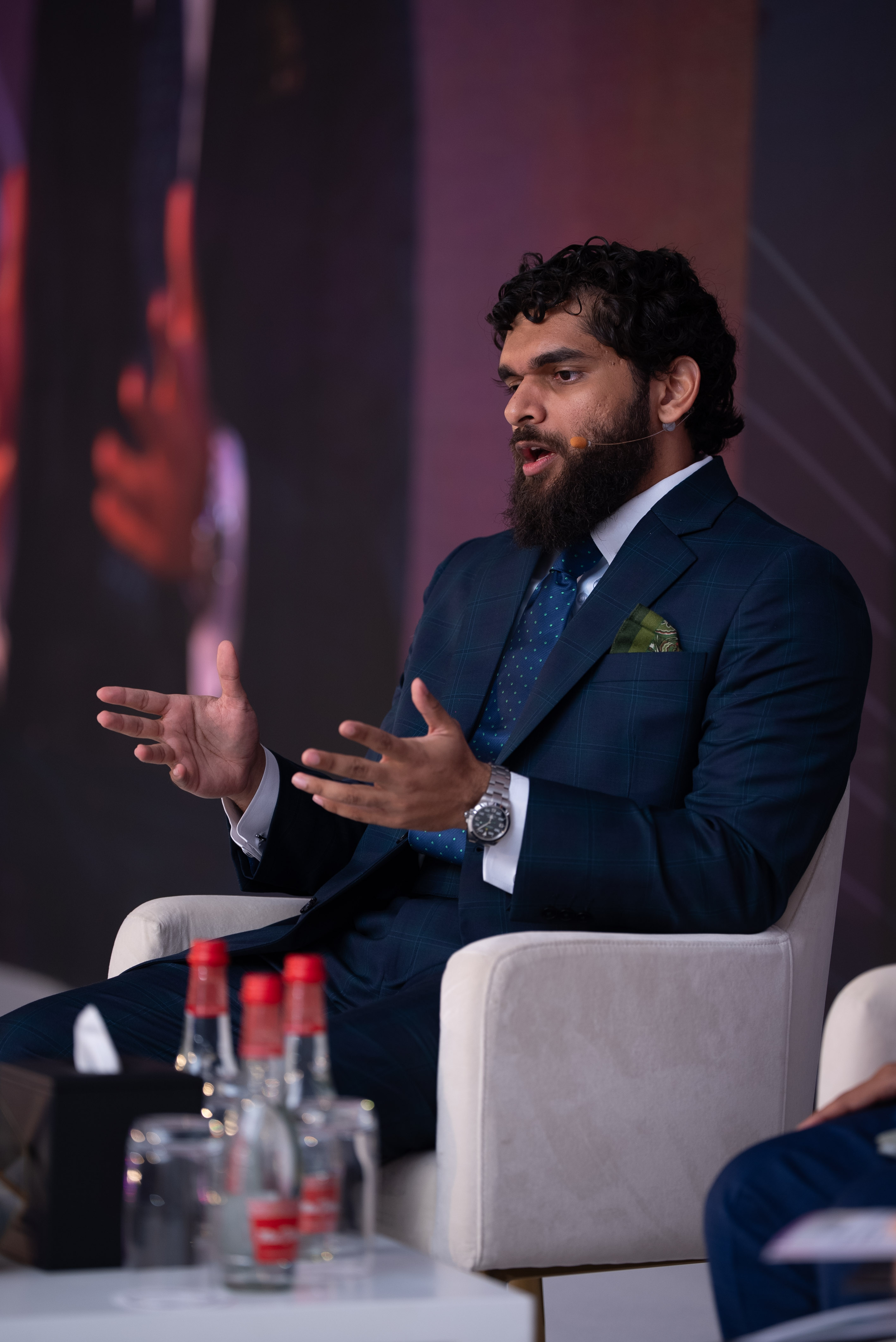November 17, 2025
Kreol Group’s Executive Director calls for honest commercial commitment to sustainability & social responsibility
In a direct challenge to travel retail’s ESG rhetoric, Kreol Group’s Kreol Arakulath argues that sustainability requires honest financial commitment across the value chain

Speaking at the “Sustainability Update” session at this year’s MEADFA Conference in Dubai, Kreol Group Executive Director Kreol Arakulath stripped away the complexity surrounding sustainability in travel retail to expose an uncomfortable truth: without genuine financial commitment across the value chain, the industry’s environmental commitments remain aspirational theater.
He began by acknowledging the contradictions inherent in aviation sustainability discussions. “On one hand, we’re talking about lowering carbon emissions, but on the other hand we want more people to get on airplanes and travel,” he said. “So is that a contradiction, or is that more straightforward than we think?”
ESG’s evolution
Arakulath’s presentation traced how ESG evolved from a straightforward concept into what he characterized as a diluted brand hijacked by financial institutions. As an illustration, he pointed out that while 2010s saw debates over paper straws versus metal straws, the pandemic’s disposable culture wiped away those conversations. Investment firms began marketing ESG portfolios as both ethical and profitable, but the lack of uniform standards enabled what he described as gaming the system.

Arakulath catalogued the ways companies can circumvent genuine environmental progress: purchasing carbon credits to offset pollution rather than reducing emissions, double counting of credits, shifting toxic assets from public companies to private equity firms, and exploiting sustainability-linked loans from the European Central Bank.
“Bad actors tend to gamify it,” he said. “So it becomes more about how you can get a higher ESG score without necessarily doing the real work.”
How ESG got lost along the way
As the industry’s attention shifted to technology and AI, ESG slipped from view. The pivot created new contradictions that only deepened the confusion. Arakulath pointed to articles claiming that being polite to ChatGPT contributes to deforestation, illustrating how muddled the messaging had become. Even well-intentioned actions now carried environmental guilt, leaving the industry paralyzed by mixed signals rather than focused on meaningful change.
Against this backdrop of contradictory signals and shifting priorities, he posed a fundamental question: does sustainability really need to be this complicated?
“What we’re saying is, if you’re fortunate enough to be able to earn an honest living,reinvest a little bit of that into the betterment of society,” he said. “That’s the core premise of social responsibility.”
Real worlddecisions
Arakulath’s presentation examined each stakeholder’s sphere of influence. Brands control product development, but face a gap between what consumers say they want and what they are willing to purchase. He cited Kreol’s experience representing a personal care company that launched a truly sustainable product called Zero.

“Consumers were not prepared to pay the premium for all of the fully recycled packaging, sustainable ingredients and compliant ethical supply chain,” he said.
Product considerations extend beyond environmental factors to accessibility. Kreol’s work with Pringles incorporates NaviLens technology that provides audio guidance for visually impaired customers, while dietary restrictions inform product selection for passengers with specific needs.
“If I have to conclude on the brand side of things, I would say that the brands have the strongest sense of community because they spend most into emotional engagement,” he said.
Retailers determine what captures passenger attention through assortment decisions, traffic direction and store construction materials. Airports, meanwhile, are best positioned for governmental advocacy and regulatory lobbying while setting what Arakulath termed “the temperature for the entire value chain.”
He pointed to Cochin International Airport achieving 100% solar self-sufficiency as evidence that comprehensive sustainability is possible when all parties commit.
The challenge
The presentation turned to the economic reality of sustainable value chains. External costs to society, socially responsible expenditures and improved operational practices all increase product costs. While some initiatives like paperless accounting generate savings, these don’t meaningfully offset duty free’s value proposition.

“The real support comes from commercial support when it’s passed down the value chain,” he said.
Arakulath then issued his challenge to airports, which determine the commercial temperature for the entire chain while their financial decisions ripple through to brands and distributors.
“The best collaboration for actually having a sustainable value chain is, airports have to make a conscious decision on which initiatives they want to support, even if it’s for a time-bound period, and waive different commercials to highlight or support those,” he said.
This approach would relieve pressure on retailers who currently squeeze everyone else in the chain. It would enable brands to focus on creating sustainable offers rather than abandoning them due to cost pressures. Distributors could then focus on sustainable execution of those models.
“If we’re not in a position to put our money where our mouth is when it comes to sustainability, then we’re not exactly being honest with ourselves,” said Arakulath.




